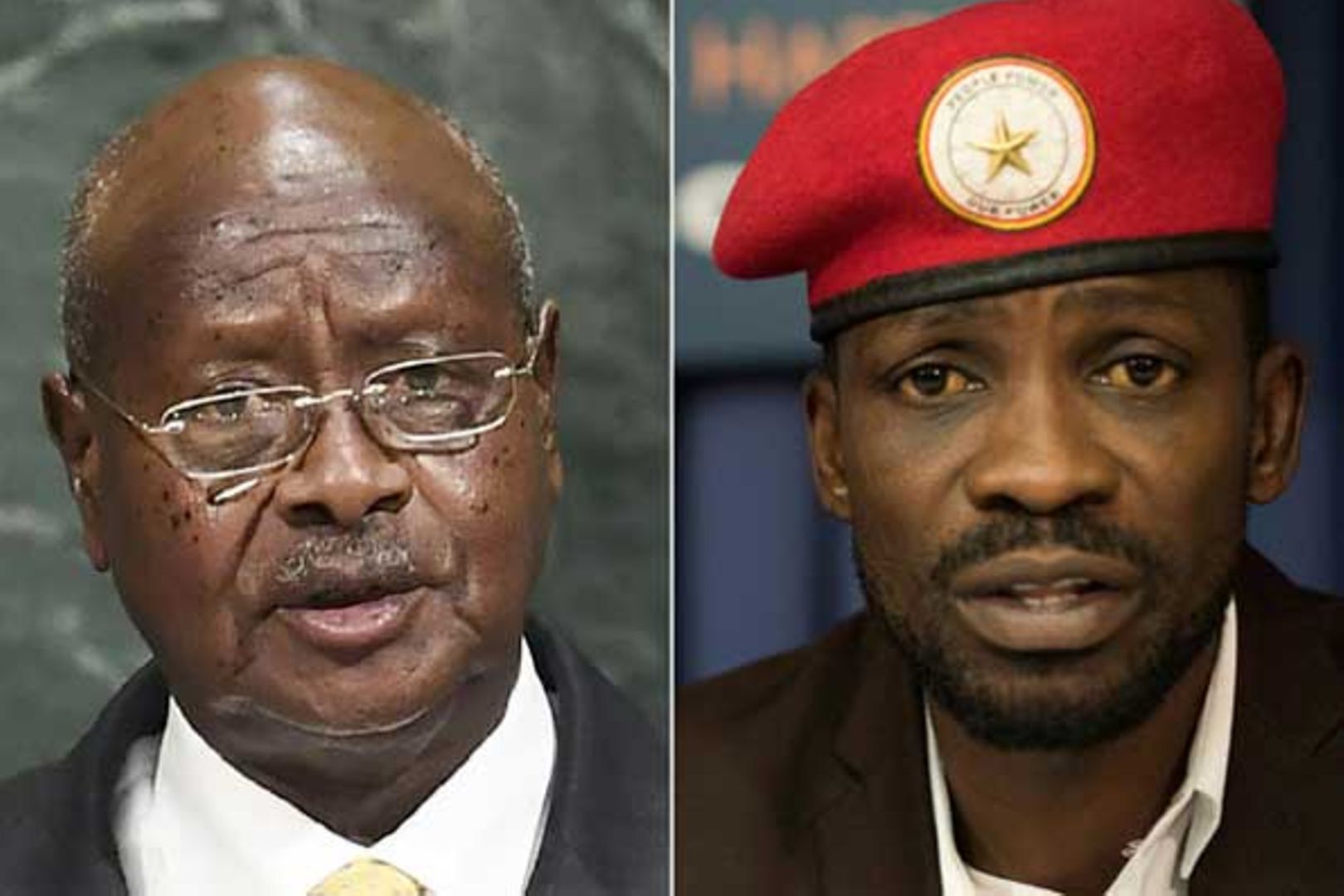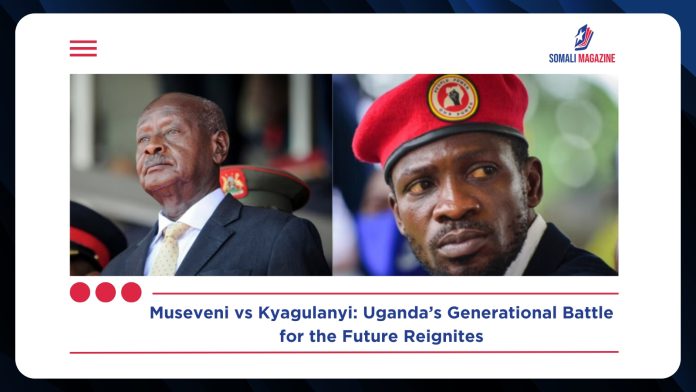Facebook Twitter (X) Instagram Somali Magazine - People's Magazine
Museveni vs Kyagulanyi is once again shaping Uganda’s political narrative as the country braces for a high-stakes showdown between President Yoweri Museveni and opposition leader Robert Kyagulanyi, popularly known as Bobi Wine. The generational clash between the 79-year-old incumbent and the 42-year-old pop star-turned-politician is reigniting debates over leadership, democracy, and the future of Uganda.
With the 2026 general elections looming, both camps are mobilizing their bases. Museveni, who has ruled Uganda since 1986, is expected to seek re-election under the National Resistance Movement (NRM), while Kyagulanyi, the leader of the National Unity Platform (NUP), is rallying the youth and urban voters who propelled his meteoric rise in 2021.
The rivalry is more than political—it’s symbolic. Museveni represents the old guard, a military-rooted leadership style that has dominated Uganda’s post-independence era. Kyagulanyi, on the other hand, embodies a youthful, populist movement driven by frustration with unemployment, corruption, and political stagnation. Their clash is not just about policy—it’s about identity, generational power, and the soul of the nation.
In recent months, Kyagulanyi has intensified his grassroots campaigns, holding rallies in key districts despite heavy police presence and frequent disruptions. His message remains consistent: Uganda needs a peaceful transition of power and a government that reflects the aspirations of its youthful majority. With over 75% of the population under the age of 30, his appeal resonates deeply.

Museveni, meanwhile, has doubled down on his legacy of stability and economic growth, warning that the opposition’s rhetoric could destabilize the country. He continues to portray Kyagulanyi as inexperienced and reckless, accusing him of exploiting populist sentiments without offering viable solutions.
The tension between the two camps has spilled into Uganda’s institutions. Civil society groups have raised concerns over shrinking civic space, media censorship, and the use of security forces to suppress dissent. The Communications Commission recently banned live broadcasts of opposition rallies, drawing criticism from press freedom advocates.
Observers say the 2026 election could be Uganda’s most consequential yet. While Museveni’s grip on power remains firm, Kyagulanyi’s growing influence—particularly among first-time voters—poses a serious challenge. His ability to galvanize support through music, social media, and grassroots organizing has transformed him from a political outsider into a formidable contender.
The generational divide is also evident in campaign messaging. Museveni’s speeches often emphasize national security, historical achievements, and regional diplomacy. Kyagulanyi’s narrative, by contrast, is rooted in lived experience—poverty, police brutality, and the daily struggles of ordinary Ugandans. His slogan “People Power, Our Power” has become a rallying cry for change.
Despite the odds, Kyagulanyi’s supporters remain hopeful. “We’ve seen what the old system offers. It’s time for something new,” said a university student in Kampala. “Bobi speaks our language. He understands our pain.”
Museveni’s backers argue that continuity is key. “We can’t gamble with our future,” said an NRM supporter in Mbarara. “Museveni has kept the country stable. That’s what matters.”
As the political temperature rises, the world is watching. The outcome of the Museveni vs Kyagulanyi battle will not only determine Uganda’s leadership but also signal whether generational change can be achieved through the ballot box in a region where incumbency often trumps reform.

